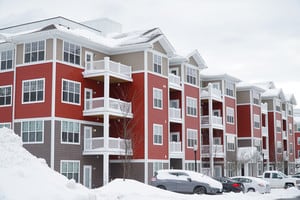Seattle keeps making it harder for small landlords like us

We are Seattle property owners who rent our houses and apartments to people who need housing. Along with other small landlords, with just one or a few rental units each, we are deeply concerned about this proposal.
We house families with small children, working professionals, tradespeople and service workers. Our tenants have included a university professor, a paralegal, a King County employee, a FedEx worker, a plumber, a police officer, a clothing designer, a small business carpenter, local shop workers and a graduate student who hopes to be a Seattle public school teacher. Our tenants are from a spectrum of backgrounds and ethnicities, including LGBTQ, Black, Latino (including DACA Dreamers), Asian American and Native American.
Our ability and the ability of other small landlords to offer “naturally affordable” housing (rentals that are less expensive than newer housing or larger corporate rentals) is dwindling very quickly. This legislation and other recent ordinances (such as the first come, first served renters law and “roommate” bill) have significantly increased the risk, liability and complexity of being a small private housing provider in Seattle.
Seattle’s flurry of rental rules means higher rent for tenants and higher qualifying criteria for applicants. It is a significant barrier to new landlords, as well.
Some small landlords, including people we know, are selling off rental housing within Seattle city limits as a direct result of recent and proposed laws, meaning a net loss of lower-cost rentals. Is anyone tracking this important impact?
Many of us have tried to participate in the city process and have found that independent landlords do not have a voice at City Hall. We have not been included in major legislative changes, nor welcomed to collaborate with the Renters’ Commission. The result is the corporatization of rental housing in Seattle.
The City Council is creating a rental market that is more expensive and less flexible. It favors property management companies and larger corporations that have in-house maintenance crews, legal teams, training staff and lobbyists.
Along with this, we’re concerned about the broader effect this has for those who rent homes to people who might have problems paying rent. People like us want to work with tenants who hit a tough spot, and we usually do. But this proposal is asking small landlords to suddenly have flexibility to operate without any income for almost half the year, risking liens and mortgage defaults. And it could mean that people who otherwise would work with us to manage problems would be incentivized not to pay rent. What happens in a potentially contentious situation when the city is promoting the solution of tenants not keeping their obligations?
The council seems to have forgotten small landlords and local businesses. They are not fully considering what kind of Seattle they are creating.
Seattle could prevent people from being evicted in winter, help them pay their rent and help stabilize their lives with diversion funds and supportive services. The Home Base program at United Way is an excellent example of emergency funding for tenants. This is similar to how the SNAP program and area food banks help subsidize groceries, rather than requiring stores to provide free food.
Any eviction is painful and expensive, but with 600 of them a year, fewer in the “winter months,” we need a solution that doesn’t involve making the problem worse.
Source: seattletimes.com















 Accessibility
Accessibility